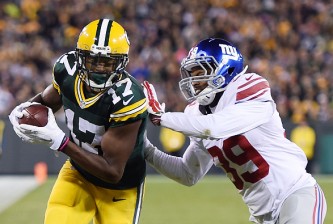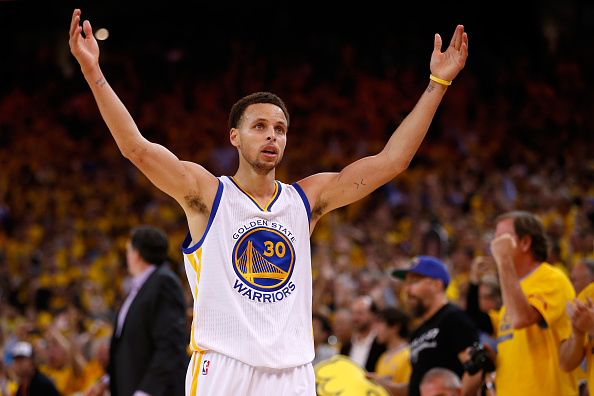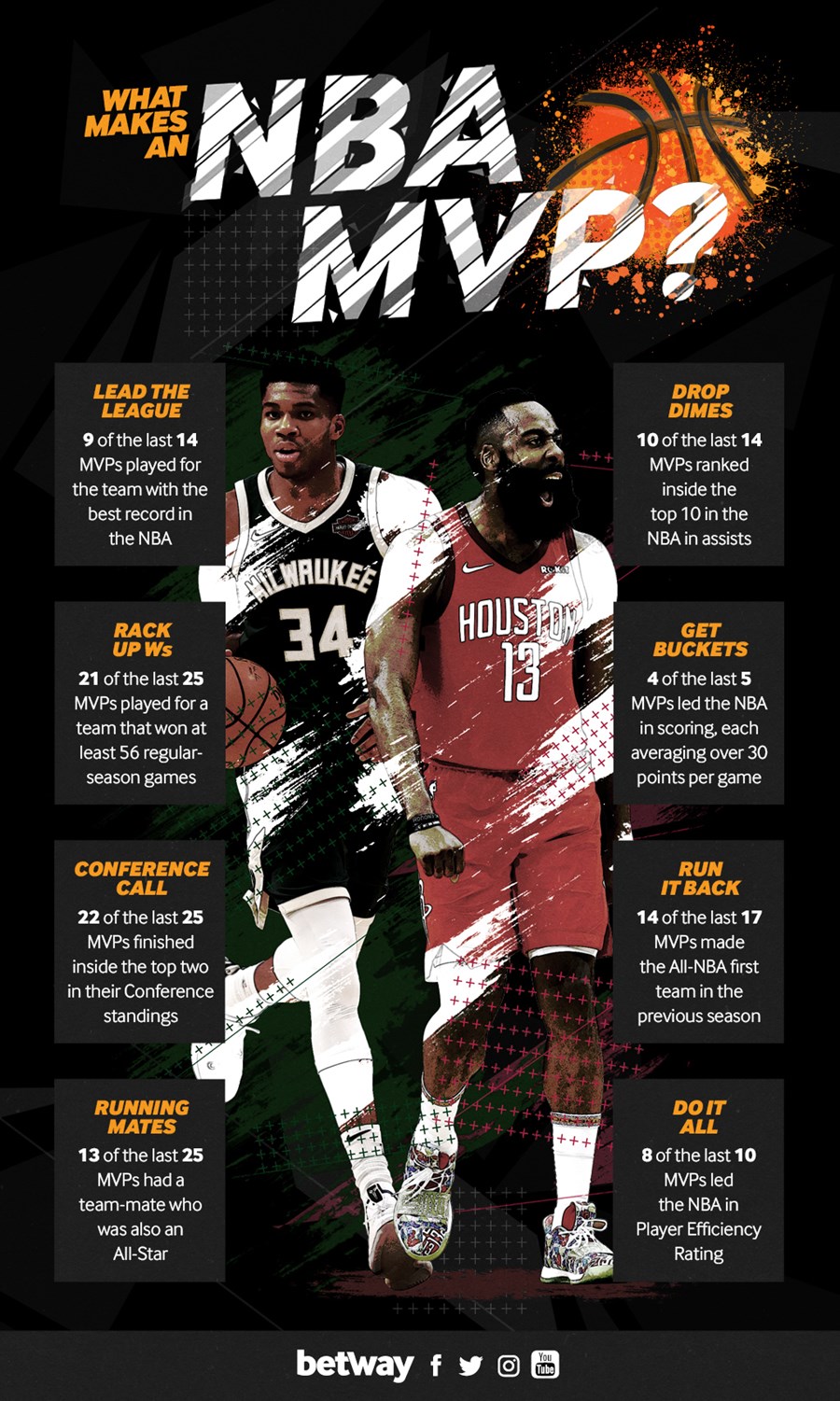This season’s race is the closest in years, but a look back at the history of the award reveals what really matters to MVP voters.
The NBA’s MVP should be awarded to the best player in the league.
Unless it’s the most important player for the league’s best team. Or the star with the most impressive individual statistics. Or the one whose team would be the most affected by his absence.
Let’s face it – the MVP race is hugely subjective, with the definition of what truly makes a player ‘valuable’ seeming to change every year.
That’s particularly true this season, with Giannis Antetokounmpo the narrow sports betting favourite over James Harden in what will likely be the closest vote in years. Bucks big man Giannis Antetokounmpo is on track to win his first-ever NBA MVP Award this season, as he’s literally put the team on his back and carried them to the best record in the league.
Milwaukee absolutely demolished Detroit in Game 1 of their playoff series,121-86. Giannis was a big reason for that, with 24 points and 17 rebounds in only 23 minutes of action. It was one of the most efficient performances we’ve ever seen.
And Giannis had something to say about how stout he was in the game, as it relates to the edge he has over the rest of the league’s big men.
“I’m f—ing unstoppable!” he yelled.
"I’m f–king unstoppable”
Giannis was letting everyone know pic.twitter.com/E6Brro5tTB
— Bleacher Report (@BleacherReport) April 15, 2019
He’s not wrong.
Whether Harden’s offensive brilliance makes him more influential than Antetokounmpo’s all-round game is up for debate, but a look back at the history of the award reveals what really matters when it comes to deeming who is the MVP.
Scoring is a good place to start.
Being the league’s top scorer hasn’t historically been a prerequisite for an MVP, but that has changed in recent years.
Four of the last five winners led the NBA in points, all of whom averaged over 30 per game.
It’s not all about putting up points, though.
Getting team-mates involved has become much more important in the past decade, with eight of the 10 MVPs since 2008 having ranked inside the NBA’s top 10 in assists.
It follows, then, that while centers and power forwards dominated the award in the 1990s and early 2000s, it’s now guards and ball-dominant forwards who receive most of the votes.
Seven of the 11 MVPs between 1993 and 2004 ranked inside the top 10 in the NBA in rebounds, but just one has reached that mark since then: Russell Westbrook – a point guard – in 2017.
Over the past decade, one individual statistic has been the clearest indicator of who will be the NBA’s MVP: Player Efficiency Rating.
This advanced metric, developed by the Memphis Grizzlies’ executive John Hollinger, boils down all a player’s statistics into a single number.
Of the past 10 MVPs, eight led the league in PER.
This Infographic from Betway tells the tale of what makes a true NBA MVP.
Harden’s statistical excellence is clear – he led the league in scoring in the regular season with 36.1 points per game and also ranked seventh in assists – but Antetokounmpo has also put up great all-round numbers and has the added edge of playing for a superior team.
The debate will continue up until – and even beyond – the NBA awards, but, if history is anything to go by, the voters will almost certainly go with the Greek Freak.

























